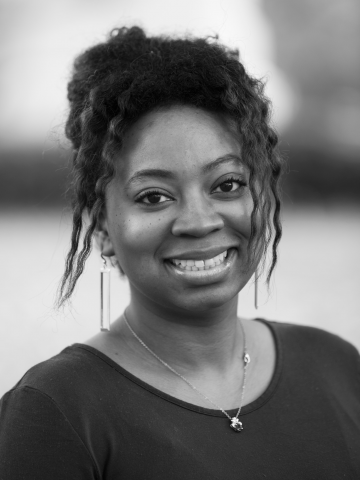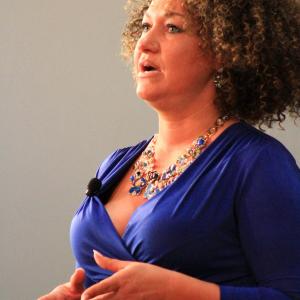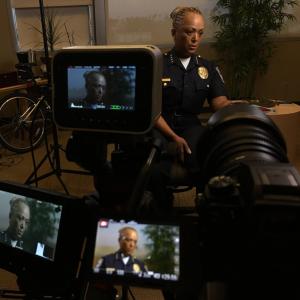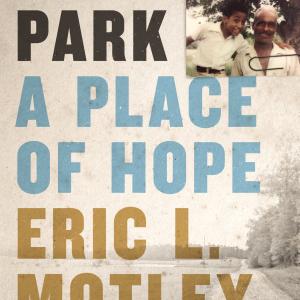
Jazmine Steele completed her undergraduate degree in Journalism at Grand Valley State University in Grand Rapids, Mich., and Master’s of Divinity at Wesley Theological Seminary in Washington, D.C. She grew up religiously “unaffiliated” and has served in Christian and Unitarian Universalist traditions.
Jazmine is a native of Detroit, where she spent four years covering arts, culture, and her own creative take on community news, The Good News Banter Show.
She is intrigued by the intersections of faith and culture, but is also a lover of the arts. Jazmine’s happy place is at a craft store. You can find her between pop-up shops, random lectures, and free concerts in the city.
Posts By This Author
A Moral Response to Cyberwar
IN MAY, a ransomware virus attacked computer systems in 150 countries and impacted more than 200,000 people. Experts say it was one of the largest cyberattacks ever. Is cyberwar the new frontier? And what do we make of the claim by Microsoft president Brad Smith that this virus piggybacked off a digital weapon developed by the United States? And then there’s Russia’s alleged interference with the 2016 U.S. presidential election. If there was an interception of the American people’s right to the democratic process in order to advance Russia’s own political agenda, what is a proper response?
John B. Sheldon, a professor of cybersecurity at the School of Advanced Air and Space Studies in Alabama, defined cyberwar as “war conducted in and from computers and the networks connecting them, waged by states or their proxies against other states.” Cyberwar is not to be confused, according to Sheldon, with online espionage, digital terrorism, or other forms of cybercrime. Not every cyberattack is part of a cyberwar, nor should it be treated as such. Online weapons are cheap to make and easy to deploy; they are also primarily anonymous. And the most effective way to bring cybercriminals to justice and restore security might well be civilian-controlled internet policing, not state-led responses.
After Police Harassment, Filmmaker's New Documentary Calls for Love
"When a black man gets shot and killed on the side of the road for doing nothing other than being black, and no one says anything about it but maybe some black people for a little while, and then it goes away, the church has not done enough. It has done nearly nothing."
Finding a ‘Place of Hope’
Eric L. Motley, former special assistant to George W. Bush and current Executive Vice President of the Aspen Institute, shares on the hard knocks and treasures of growing up in a largely poor African-American town during the height of the civil rights era in his memoir Madison Park: A Place of Hope. In the memoir, Motley chronicles his journey from a rural town founded by freed slaves in Alabama to navigating the political terrain of the White House. Motley recounts formative and disappointing experiences around the issue of race and highlights some of the small-town heroes that poured into his life as a child. The memoir provides a thoughtful reflection of how faith and radical love within a tight-knit community can significantly impact a person’s life.
Motley recently spoke with Sojourners about his story.
Liberation Through Lamentation
WALTRINA MIDDLETON'S VOICE lifts you to the highest highs with bellows of crisp spoken word. Seamlessly, her croons can plunge you down the rhythm of any blues-laced freedom song. Your heart is gripped with deep, rolling riffs of truth spoken.
Harnessing the power of pain is just one of her many spiritual gifts. Middleton is an ordained minister, activist, and artist with roots in the Gullah Geechee community in South Carolina. A self-professed country girl, she grew up in Hollywood, S.C., on the coastal Gullah Sea Island of Yonges, about 30 minutes outside of Charleston.
“It was beautiful—a swampland with dirt roads, farm, and fields,” she told Sojourners. “I made my grandparents’ hogs my pets before I realized they were actually dinner.”
It’s been a winding road on the path to self-discovery for Middleton, but she says music was there from the very beginning. “Music was central to our family,” she said. “It was an intergenerational medium that brought us together, but also rooted us in our faith.”
Her grandparents had 16 children, and all of them could sing or play an instrument. The family put together a group called the Middleton Gospel Singers that toured the local church community. “Part of the country circuit is to have some kind of gospel group,” she said. “The women in my family were the instrumentalists. I was always with my family when we would be in church all day going to these programs. The whole point was to worship God. It was just something that you did.”
Even when there wasn’t a church function or performance, Middleton says music was a part of her everyday life. “We had this big ol’ barn, and we would be in the barn sitting, rehearsing, and practicing,” she said. “Sometimes there would be a fire; sometimes people would just come, listen, and talk. While they were rehearsing, we would sit out there and eat crab.”
At these family gatherings, her artistic flair began to take shape. She admired her older cousins and says they heavily influenced her style. “They had this depth to them that I couldn’t describe,” she said. “It was very low and lamenting. I found myself trying to imitate their style. It also taught me that worship could also be lamenting.”
How ‘Detroit’ Can Reclaim Its Time
The newly released movie Detroit inflames past wounds of race, poor economic conditions, and police brutality in a city still gripped with these issues. I won’t give spoilers to the movie but I will share how Congresswoman Maxine Waters’ recent trending statement ‘reclaiming my time’ provides wisdom for a divided community to heal and waste no time re-living the past.
Why Cybersecurity Is an Issue of Faith
America as a largely Christian nation is under scrutiny for its values and integrity. It’s an interesting time to be a person committed to faith in action. How does Christian faith inspire a response to these chaotic times?
Why I Thank Rachel Dolezal

Image via TEDx UIdaho/Flickr
If the goal is to challenge a broken system, does skin color matter for the person doing the challenging? Are black people, or others from an oppressed group, the more appropriate persons to lead change? If so, who are those leaders currently, and are they doing the best job? Does an ambitious white person have a place in racial reconciliation leadership?
Processing the Spirit of Fear Pervading This Election Season
Halloween has passed and people are still scared out of their minds. The ghoulish costumes, haunted houses, and spirits, just don’t compare to the future of this country set to unfold over the next few days. Separatism, sexual assault, and scandal have set the stage. The anxiety of what is to come is chilling. I see it everywhere.






